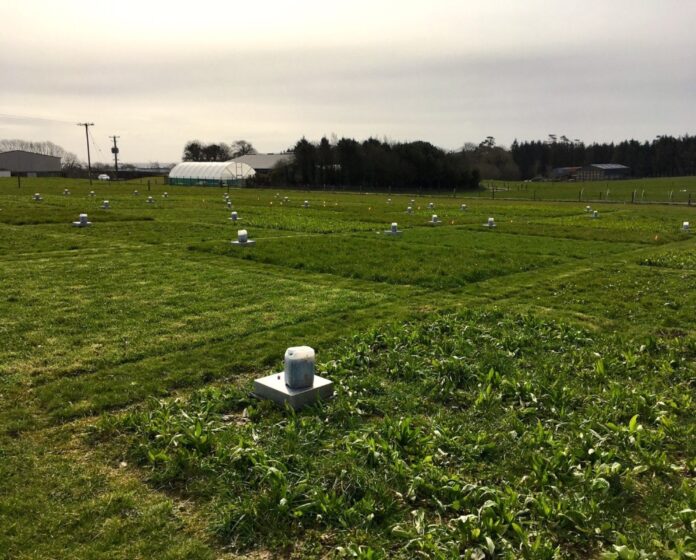This year’s Brian Chambers International Award for Early Career Researchers was won by Dr. Saoirse Cummins, a researcher at Teagasc’s Environment Research Centre at Johnstown Castle.
Saoirse’s poster entitled ‘Strong effects of grassland sward composition on reducing N2O emissions and emissions intensity’ showcased her PhD work carried out at Teagasc’s Environment Research Centre at Johnstown Castle in collaboration with Rothamsted Research and The University of Reading, UK.
The poster highlights the benefits of multi-species mixtures to reduce the greenhouse gas emissions intensity (the cost of emissions per unit production) of the potent gas nitrous oxide (N2O). Saoirse’s results are from a yearlong field trial assessing N2O emissions in relation to grassland sward composition and a system scale analyses of N2O emissions and sheep production.
The Brian Chambers International Award, organised by the International Fertiliser Society (IFS) is an award scheme for Early Career Researchers who demonstrate how their work can provide practical benefits to farm crop nutrition. The award is hosted at the annual IFS Agronomic Conference since 2015 and this year took place in Cambridge, UK on 9-10 December following the theme ‘Updating Evidence-Based Management of Crop Nutrition’.
Speaking about her work, Dr Cummins commented; “Some key results presented at the IFS conference include the significantly reduced N2O emissions intensity of a 6-species sward compared to a perennial ryegrass monoculture at higher (300 kg ha-1 yr-1) and equal (150 kg ha-1 yr-1) inorganic nitrogen application levels. In another analysis of sheep systems, I found that lambs had 2kg increased live weight gain when reared on a low nitrogen (40 kg ha-1 yr-1) grass-clover mixture compared with a grass monoculture receiving higher N inputs (120 kg N ha-1 yr-1). The grass-clover system also produced less N2O emissions so had a lower N2O emissions intensity.”
Saoirse Cummins’s findings build on previous research and provide further evidence to support the role of multi-species and clover based swards in climate-smart livestock production systems.




